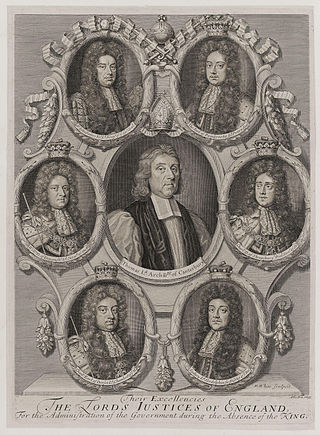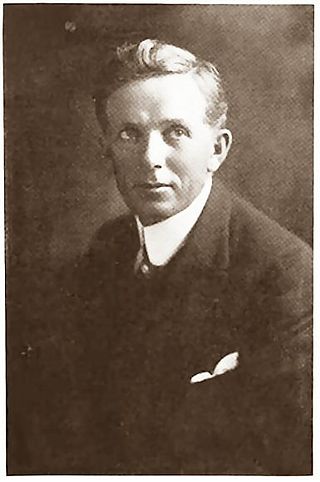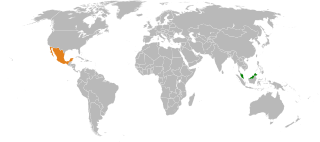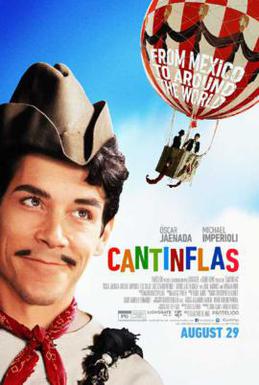
Mario Fortino Alfonso Moreno Reyes, known by the stage name Cantinflas, was a Mexican comedian, actor, and filmmaker. He is considered to have been the most widely accomplished Mexican comedian and is well known throughout Latin America and Spain.

Excellency is an honorific style given to certain high-level officers of a sovereign state, officials of an international organization, or members of an aristocracy. Once entitled to the title "Excellency", the holder usually retains the right to that courtesy throughout their lifetime, although in some cases the title is attached to a particular office and is held only during tenure of that office.

Bess Flowers was an American actress best known for her work as an extra in hundreds of films. She was known as "The Queen of the Hollywood Extras," appearing in more than 350 feature films and numerous comedy shorts in her 41-year career.

John Lewis Hart, also credited as John Hilton, was an American film and television actor. In his early career, Hart appeared mostly in westerns. Although Hart played mostly minor roles in some fairly well known films, he was probably best known for playing the character Hawkeye in the TV series Hawkeye and the Last of the Mohicans and replacing Clayton Moore in the television series The Lone Ranger for one season (1952–53).

The Exterminating Angel is a 1962 Mexican surrealist black comedy film by Luis Buñuel. The film stars Silvia Pinal, and it was produced by Pinal's then-husband Gustavo Alatriste. It tells the story of a group of wealthy guests who find themselves unable to leave after a lavish dinner party, and the chaos that ensues. Sharply satirical and allegorical, the film contains a depiction of the aristocracy that suggests they "harbor savage instincts and unspeakable secrets".

George H. Melford was an American stage and film actor and director. Often taken for granted as a director today, the stalwart Melford's name by the 1920s was, like Cecil B. DeMille's, appearing in big bold letters above the title of his films.
Fernando Wagner was a German-born Mexican actor and film director. He had prominent roles in La Perla and The Wild Bunch. He was also a co-founder of the Mexican theatre scene, working with Cantinflas and founding the theatrical faculty at UNAM in Mexico City. His interment was in Mexico City's Panteón Jardín.

El ministro y yo is a 1976 Mexican film directed by Miguel M. Delgado and starring Cantinflas, Chela Castro, Lucía Méndez and Ángel Garasa. It is the last film in which Cantinflas acted alongside Garasa.

A state banquet is an official banquet hosted by the head of state in his or her official residence for another head of state, or sometimes head of government, and other guests. Usually as part of a state visit or diplomatic conference, it is held to celebrate diplomatic ties between the host and guest countries. Depending on time of the day, it may be referred to as a state dinner or state lunch. The size varies, but the numbers of diners may run into the hundreds.

Spaso House is a listed Neoclassical Revival building at No. 10 Spasopeskovskaya Square in Moscow. It was originally built in 1913 as the mansion of the textile industrialist Nikolay Vtorov. Since 1933, it has been the residence of the U.S. Ambassador to the Soviet Union, and since 1991, to the Russian Federation. The building belonged to the USSR and later Russia and, under the 1985 lease contract, the U.S. was supposed to pay 72,500 Soviet roubles per year, which by 2001 was the equivalent of about $3, which the U.S. had failed to pay in 1993. In 2004, the two sides concluded a new 49-year lease that was said to be based on a joint assessment of the property's value; the rent rate was not disclosed.
El bolero de Raquel is a 1957 Mexican comedy film directed by Miguel M. Delgado and starring Cantinflas, Manola Saavedra, Flor Silvestre, and child actor Paquito Fernández. The film's art direction was by Gunther Gerszo.

The nations Mexico and Russia initially established diplomatic relations in 1890. In 1924, Mexico recognized and established diplomatic relations with the Soviet Union. In 1930, Mexico broke diplomatic relations with the USSR and granted asylum to Leon Trotsky. In 1943, Mexico and the USSR re-established diplomatic relations. After the dissolution of the union, Mexico once again established diplomatic relations with the current Russian Federation in 1992.

Comedy in the Golden Age of Mexican Cinema is a Mexican era of film popular during "El Porfiriato" which represents the reign of Porfirio Díaz as dictator in Mexico.

The nations of Malaysia and Mexico established diplomatic relations in 1974. Both nations are members of the Asia-Pacific Economic Cooperation, Forum of East Asia–Latin America Cooperation and the United Nations.

Cantinflas is a 2014 Mexican biographical comedy-drama film directed by Sebastián del Amo. Based on the life of actor and comedian Cantinflas, the film stars Óscar Jaenada as the title character, Michael Imperioli, Ilse Salas, Bárbara Mori, Ana Layevska and Adal Ramones. It premiered on September 18, 2014 in Mexico. In the United States it was released on August 29, 2014. It was selected as the Mexican entry for the Best Foreign Language Film at the 87th Academy Awards, but was not nominated.

The Embassy of the United Kingdom in Mexico City is the chief diplomatic mission of the United Kingdom in Mexico. The Embassy is located on Paseo de la Reforma 350 20th Floor, Torre del Angel.
The Doorman, also known as Puerta, joven, is a 1950 Mexican comedy film directed by Miguel M. Delgado and starring Cantinflas and Silvia Pinal.
El patrullero 777 is a 1978 Mexican comedy film directed by Miguel M. Delgado and starring Cantinflas, Ana Bertha Lepe and Valeria Pani. The film concludes the loose trilogy around the character of the Patrolman 777, who first appeared in The Unknown Policeman (1941) and reappeared in The Atomic Fireman (1952), although the only connection between the three films is that Cantinflas's character is a policeman who uses the callsign 777.
Such Is My Country is a 1937 Mexican comedy film directed by Arcady Boytler and starring Antonio R. Frausto, Mercedes Soler, Juan José Martínez Casado, Manuel Medel, and Mario Moreno, better known by the stage name Cantinflas. It was the first film to feature Cantinflas in a prominent role and the first of Cantinflas's films together with Medel as a team.
The Ninth Summit of the Americas was an international conference held in Los Angeles, United States, from June 6 to 10, 2022. The theme was "Building a Sustainable, Resilient, and Equitable Future".














